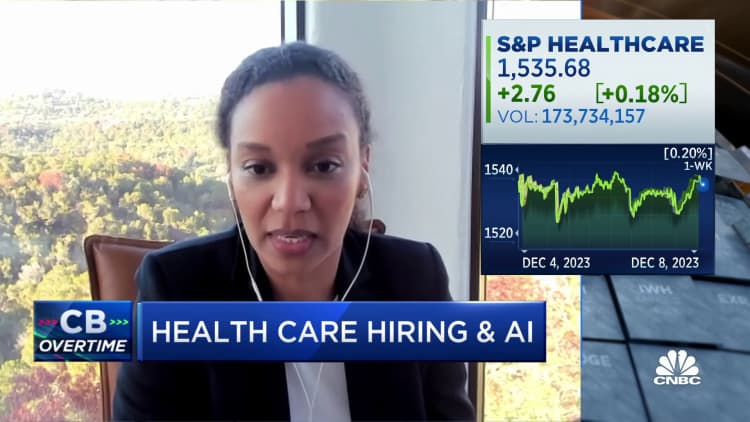A picture handled November 23, 2023 reveals the logo design of the ChatGPT application established by United States expert system research study company OpenAI on a mobile phone screen (left) and the letters AI on a laptop computer screen in Frankfurt am Main, western Germany.
Kirill Kudryavtsev|Afp|Getty Images
The European Union on Friday accepted landmark guidelines for expert system, in what’s most likely to end up being the very first significant policy governing the emerging innovation in the western world.
Significant EU organizations invested the week hashing out propositions in an effort to reach an arrangement. Sticking points consisted of how to control generative AI designs, utilized to develop tools like ChatGPT, and usage of biometric recognition tools, such as facial acknowledgment and finger print scanning.
Germany, France and Italy have actually opposed straight managing generative AI designs, called “structure designs,” rather preferring self-regulation from the business behind them through government-introduced standard procedures.
Their issue is that extreme policy might suppress Europe’s capability to take on Chinese and American tech leaders. Germany and France are home to a few of Europe’s most appealing AI start-ups, consisting of DeepL and Mistral AI.
The EU AI Act is the very first of its kind particularly targeting AI and follows years of European efforts to control the innovation. The law traces its origins to 2021, when the European Commission initially proposed a typical regulative and legal structure for AI.
The law divides AI into classifications of threat from “undesirable”– implying innovations that need to be prohibited– to high, medium and low-risk kinds of AI.
Generative AI ended up being a mainstream subject late in 2015 following the general public release of OpenAI’s ChatGPT. That appeared after the preliminary 2021 EU propositions and pressed legislators to reconsider their method.
ChatGPT and other generative AI tools like Steady Diffusion, Google’s Bard and Anthropic’s Claude blindsided AI professionals and regulators with their capability to produce advanced and humanlike output from easy inquiries utilizing large amounts of information. They have actually stimulated criticism due to issues over the prospective to displace tasks, produce discriminative language and infringe personal privacy.
SEE: Generative AI can assist accelerate the employing procedure for health-care market
